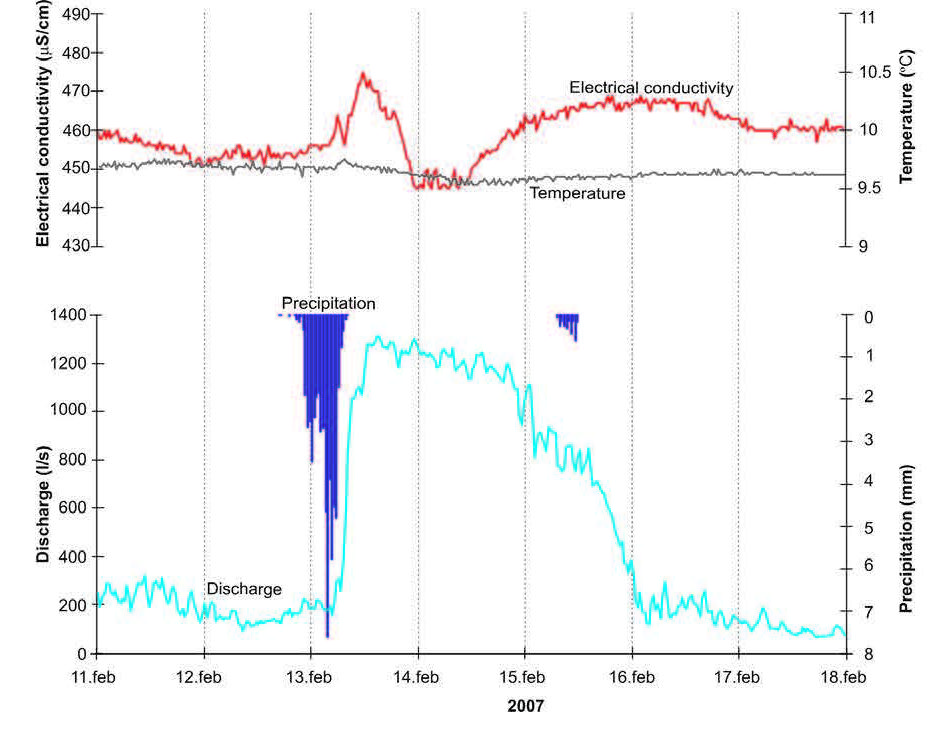Variability of groundwater flow and transport processes in karst under different hydrologic conditions
DOI:
https://doi.org/10.3986/ac.v42i2.644Keywords:
karst aquifer, temporal hydrological variability, groundwater flow, transport processes, karst spring, water source protectionAbstract
Significance of hydrological variability in karst is presented, which also discusses factors inducing such variability and consequences it may cause. Groundwater flow in karst aquifers is often characterized by strong variability of flow dynamics in response to different hydrologic conditions within a short time period. Consequently, water table fluctuations are often in the order of tens of meters, differences in flow velocities between low- and high-flow conditions can reach ten or even more times. In dependence to respective hydrologic conditions groundwater flow also results in variations of flow directions, and thus in contribution of different parts of the aquifer to a particular spring. The described hydrological variability has many implications for contaminant transport, groundwater availability and vulnerability. Groundwater level rising reduces thickness of the unsaturated zone and decreases protectiveness of the overlying layers. Higher water flow velocities reduce underground retention. Due to more turbulent flow, transport and remobilization of solute and insoluble matter is more effective. During high-flow conditions there is usually more surface flow and hence more concentrated infiltration underground. Particularly in karst systems that show very high hydrologic variability, this should be considered to correctly characterize, understand or predict the aquifers’ hydrological behaviour and to prepare proper protection strategies.
Keywords: karst aquifer, temporal hydrological variability, groundwater flow, transport processes, karst spring, water source protection.
DOI: 10.3986/ac.v42i2.644
Downloads

Downloads
Published
How to Cite
Issue
Section
License
Authors guarantee that the work is their own original creation and does not infringe any statutory or common-law copyright or any proprietary right of any third party. In case of claims by third parties, authors commit their self to defend the interests of the publisher, and shall cover any potential costs.
More in: Submission chapter




